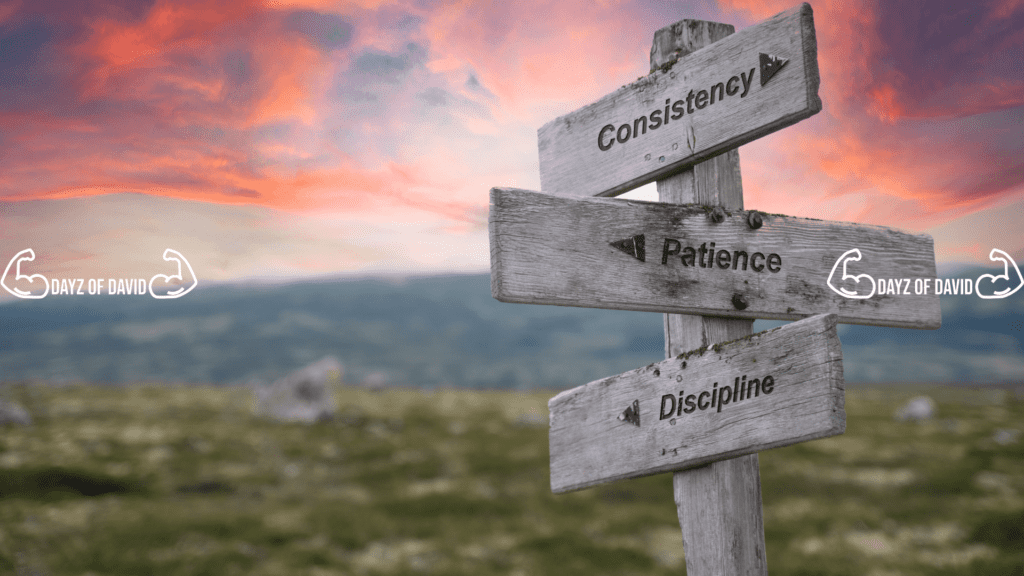In the hustle and bustle of daily life, taking a few moments for self-reflection can be a powerful habit that enhances self-awareness, personal growth, and overall well-being. In this guide, we’ll explore the significance of daily self-reflection, the benefits it offers, and practical tips for incorporating this transformative habit into your routine.
Understanding Daily Self-Reflection
Definition of Self-Reflection
Self-reflection is a profound process that involves introspection and thoughtful contemplation of one’s thoughts, feelings, and actions. At its core, self-reflection is a deliberate and conscious effort to explore the inner landscape of one’s mind and emotions. It goes beyond the surface level of daily experiences, inviting individuals to delve into the underlying motivations, beliefs, and patterns that shape their lives. This introspective journey encourages a deeper understanding of oneself, fostering personal growth and development.
During self-reflection, individuals engage in a purposeful examination of their experiences, considering the impact of their actions on themselves and others. It requires a willingness to confront both positive and challenging aspects of one’s identity, acknowledging strengths and areas for improvement. Thoughtful contemplation allows individuals to gain insights into their values, aspirations, and the alignment of their actions with their broader life goals. By regularly engaging in self-reflection, individuals can cultivate greater self-awareness, enhance emotional intelligence, and make intentional choices that align with their authentic selves.
Daily Practice
Making self-reflection a daily habit is a powerful commitment to personal growth and continuous improvement. By incorporating this practice into daily routines, individuals create a dedicated space for introspection and contemplation, allowing them to navigate life with greater self-awareness. This habit provides a structured opportunity to reflect on the events, interactions, and emotions of the day, fostering a deeper understanding of oneself.
On a daily basis, self-reflection enables individuals to assess their choices, behaviors, and reactions in various situations. It allows for a moment of pause, providing a valuable opportunity to celebrate successes, acknowledge challenges, and identify areas for development. Through consistent self-reflection, individuals can recognize recurring patterns, assess the alignment of their actions with personal values, and make intentional adjustments to foster positive growth.
Moreover, the daily practice of self-reflection promotes a mindset of continuous improvement. It becomes a proactive tool for learning from experiences, refining decision-making processes, and enhancing emotional intelligence. Regular self-examination empowers individuals to set meaningful goals, track progress, and adapt strategies as needed. This habitual introspection creates a self-reinforcing cycle of learning and growth, contributing to a more fulfilling and purposeful life. In essence, making self-reflection a daily habit is an investment in one’s own journey of self-discovery and evolution, providing a pathway to becoming the best version of oneself.
Benefits of Daily Self-Reflection
Enhanced Self-Awareness
Daily self-reflection serves as a dedicated space for individuals to delve into the intricate layers of their values, emotions, and behaviors. By taking time each day to introspect, individuals can unravel the complexities that shape their lives. This regular practice provides a unique opportunity to assess and reaffirm personal values, allowing individuals to align their actions with the principles that matter most to them. Through this deliberate examination, a deeper understanding of one’s core beliefs emerges, forming a foundation for authentic decision-making and a more purposeful life.
Furthermore, daily self-reflection acts as a mirror reflecting the spectrum of emotions experienced throughout the day. This introspective process encourages individuals to explore the roots of their feelings, recognizing patterns and triggers that influence emotional responses. By fostering an awareness of emotions, individuals gain greater emotional intelligence, enhancing their ability to navigate interpersonal relationships and make informed choices. Understanding the nuanced interplay between values and emotions contributes to more conscious and intentional behaviors, facilitating personal growth and resilience in the face of life’s challenges.
In essence, the daily ritual of self-reflection creates a bridge between one’s internal world and external actions, fostering a harmonious alignment of values, emotions, and behaviors. This ongoing exploration nurtures self-awareness, providing the foundation for a meaningful and authentic life journey.
Goal Alignment
Self-reflection acts as a compass, guiding individuals to align their daily actions with their long-term goals and values. Through the lens of introspection, individuals gain clarity on their overarching aspirations, values, and the trajectory they wish to pursue in life. This daily practice creates a structured space to evaluate whether the actions taken in the present align with the broader vision for the future.
Regular self-reflection enables individuals to identify patterns of behavior that either propel them towards or divert them from their long-term goals. It serves as a checkpoint to assess whether daily decisions are in harmony with deeply held values and aspirations. This intentional awareness facilitates a proactive approach to personal development, as individuals can make conscious choices that contribute to the realization of their overarching objectives.
Moreover, self-reflection aids in setting and refining goals by providing valuable insights into personal strengths, areas for improvement, and the impact of daily actions on progress. The process of aligning daily actions with long-term goals becomes a dynamic and iterative journey, fostering adaptability and resilience. Ultimately, self-reflection becomes a powerful tool for individuals to navigate their daily lives with purpose, ensuring that each step taken contributes meaningfully to the fulfillment of their broader life aspirations.

Stress Reduction
Self-reflection plays a pivotal role in promoting mental well-being by serving as a proactive tool for identifying stressors and managing emotions. Through intentional introspection, individuals can pinpoint sources of stress and understand the underlying factors contributing to emotional responses. This heightened self-awareness enables the development of effective stress management strategies, fostering resilience and mitigating the negative impact of stress on mental health.
Daily self-reflection acts as a mirror, allowing individuals to observe and acknowledge their emotions without judgment. By exploring the roots of feelings and reactions, individuals gain insights into their emotional landscape. This awareness is instrumental in managing emotions more effectively, as it provides the foundation for adopting healthy coping mechanisms and regulating emotional responses. The practice of self-reflection empowers individuals to cultivate emotional intelligence, enhancing their ability to navigate challenges, build positive relationships, and foster a more balanced mental state.
Furthermore, self-reflection facilitates the identification of recurring patterns in thought processes and behaviors that may contribute to stress. By recognizing these patterns, individuals can initiate positive changes, adopt coping strategies, and build resilience against the demands of daily life. This ongoing process of self-awareness and emotional regulation contributes significantly to mental well-being, creating a pathway towards greater self-care, improved stress management, and overall emotional balance.
Creating a Self-Reflection Routine
Choose a Dedicated Time
Selecting a consistent time each day for self-reflection holds profound importance in establishing and sustaining the practice as a meaningful and impactful ritual. The choice of morning, evening, or a specific break during the day is subjective and should align with individual preferences and lifestyles. The key lies in the regularity and predictability of the chosen time, creating a dedicated and non-negotiable space for introspection.
In the morning, self-reflection can set a positive tone for the day ahead. Taking time for introspection before the demands of daily life kick in allows individuals to establish a mindful mindset, prioritize goals, and frame their intentions for the day. It becomes a centering ritual that fosters a proactive and intentional approach to the upcoming challenges and opportunities.
On the other hand, evening self-reflection provides an opportunity to unwind, review the day’s events, and derive lessons from experiences. This practice can contribute to a sense of closure, allowing individuals to acknowledge achievements, express gratitude, and identify areas for improvement. Evening self-reflection aids in mental and emotional digestion, paving the way for a more restful night and a positive transition into the next day.
Selecting a specific break during the day, such as lunchtime or a mid-afternoon pause, offers a chance to recalibrate and recharge. This approach provides a moment of respite from work-related stressors and offers a mental reset, enhancing overall well-being and productivity. Incorporating self-reflection into a daily break allows individuals to maintain a healthy work-life balance and sustain their mental and emotional resilience throughout the day.
Consistency in the chosen time for self-reflection is paramount. Establishing a routine reinforces the habit, making it more likely to become an integral part of daily life. Whether morning, evening, or a designated break, the consistent practice of self-reflection becomes a cornerstone for personal growth, increased self-awareness, and the cultivation of a positive and purposeful mindset.

Select a Quiet Space
Creating a quiet and comfortable space for self-reflection is a key element in maximizing the benefits of this practice. Minimizing distractions by choosing a serene environment allows individuals to fully immerse themselves in the process of introspection, enhancing the depth and quality of their reflective experience.
A quiet space serves as a sanctuary for mental focus and clarity. In the absence of external disturbances, individuals can better attune themselves to their thoughts, emotions, and inner dialogue. This undisturbed environment encourages a more profound exploration of one’s feelings, motivations, and aspirations, fostering a deeper understanding of oneself.
Comfort plays a crucial role in facilitating a relaxed state of mind during self-reflection. When individuals are physically at ease, they are better positioned to let go of tension and stress, allowing for a more open and receptive mindset. A comfortable space promotes a sense of safety and encourages vulnerability, enabling individuals to confront and explore their thoughts and emotions with honesty and authenticity.
Furthermore, a quiet and comfortable setting contributes to a more mindful and present experience. It allows individuals to be fully engaged in the reflective process without the intrusion of external stimuli. This heightened awareness facilitates a more intentional focus on the present moment, promoting a sense of calm and tranquility.
In essence, the benefits of finding a quiet and comfortable space for self-reflection extend beyond the immediate practice. This intentional setting serves as a foundation for fostering mental well-being, self-awareness, and personal growth. By deliberately creating a space free from distractions, individuals can harness the full potential of self-reflection to cultivate a more resilient, centered, and mindful approach to life.
Use Journaling
Journaling stands as a powerful and transformative tool for documenting thoughts, emotions, and reflections, offering individuals a tangible record of their personal growth journey. The act of putting pen to paper or typing thoughts into a digital space creates a concrete and lasting record that captures the ebb and flow of life experiences.
One of the primary benefits of journaling is its ability to serve as a repository for thoughts and emotions. Documenting daily experiences, challenges, and triumphs provides a dedicated space to unload the mind, fostering clarity and understanding. By articulating emotions and reflecting on events, individuals gain insights into their reactions, patterns, and the underlying motivations that shape their lives.

Moreover, journaling becomes a narrative of personal evolution over time. As individuals revisit past entries, they witness the tangible evidence of their growth, resilience, and changing perspectives. The journal becomes a mirror reflecting the journey from past selves to present, offering a powerful reminder of the lessons learned, aspirations achieved, and challenges overcome.
The process of journaling also encourages a structured approach to self-reflection. By posing questions, setting goals, and revisiting them periodically, individuals create a dynamic dialogue with themselves. This intentional engagement fosters a deeper connection to one’s values, aspirations, and the continuous process of self-discovery.
Beyond its reflective qualities, journaling acts as a therapeutic outlet, providing an emotional release and promoting mental well-being. It offers a safe and non-judgmental space for individuals to explore their innermost thoughts and emotions. This cathartic aspect of journaling contributes to stress reduction, emotional regulation, and an overall sense of self-care.
In summary, journaling serves as more than just a documentation tool; it becomes a companion in the journey of personal growth. It captures the essence of individual experiences, providing a tangible and introspective record that facilitates self-awareness, resilience, and the ongoing pursuit of a meaningful and fulfilled life.
Questions for Daily Self-Reflection
What Went Well Today?
Encourage a positive start by reflecting on accomplishments and positive experiences.
What Could Have Been Handled Better?
Promote accountability by identifying areas for improvement and learning from challenges.
What Did I Learn Today?
Emphasize the value of continuous learning and growth through daily experiences.
Am I Aligned with My Values?
Encourage reflection on actions and decisions in relation to personal values.
Mindfulness and Self-Reflection
Mindfulness Techniques
Integrating mindfulness practices, such as deep breathing and meditation, into the routine of self-reflection can significantly enhance focus and presence, elevating the quality of the reflective experience. Mindfulness serves as a powerful ally, guiding individuals to a heightened state of awareness and concentration, enabling them to fully engage with their thoughts, emotions, and the present moment.
Deep breathing is a fundamental mindfulness technique that can be seamlessly incorporated into self-reflection. By taking slow, deliberate breaths, individuals anchor themselves in the present and create a calm mental space. This intentional breathing not only induces a sense of relaxation but also helps alleviate stress and distractions, allowing for a more profound exploration of one’s inner thoughts and feelings.

Meditation, whether in a formal seated practice or as a mindful moment during self-reflection, cultivates a focused and present state of mind. The practice of observing thoughts without judgment, a core aspect of meditation, aligns seamlessly with the goals of self-reflection. It encourages individuals to approach their inner landscape with curiosity and acceptance, fostering a deeper understanding of the self.
These mindfulness practices act as a reset button for the mind, clearing away mental clutter and creating a receptive space for self-reflection. They enhance concentration, enabling individuals to immerse themselves fully in the introspective process. As a result, the combination of mindfulness and self-reflection becomes a synergistic practice, amplifying the benefits of both and contributing to an enriched sense of self-awareness and personal growth.
Adapting the Reflection Process
Weekly and Monthly Reviews
Expanding self-reflection beyond the daily routine to include weekly and monthly reviews offers a range of benefits that contribute to a more holistic and comprehensive understanding of one’s life journey.
Enhanced Perspective
Weekly and monthly reviews provide a broader perspective on personal experiences and achievements. By stepping back at regular intervals, individuals can evaluate patterns, trends, and changes over a more extended timeframe. This expanded view helps to identify recurring themes, celebrate progress, and gain insights into the bigger picture of personal development.
Goal Alignment and Adjustment
Regular reviews allow individuals to assess the alignment of their daily actions with long-term goals. Weekly check-ins enable a more immediate response to any misalignments, fostering adaptability and goal refinement. Monthly reviews provide a more in-depth analysis, offering the opportunity to adjust strategies, set new objectives, or celebrate milestones achieved.
Emotional Resilience
Life unfolds in cycles, and emotions fluctuate accordingly. Weekly and monthly reviews create space for acknowledging and understanding emotional patterns. This heightened self-awareness contributes to emotional resilience, empowering individuals to navigate challenges more effectively and maintain a balanced mental state over time.
Recognition of Growth
The gradual nature of personal growth becomes more apparent through periodic reviews. Reflecting on weekly and monthly progress allows individuals to recognize and appreciate their evolution. This recognition serves as a powerful motivator, reinforcing the value of daily efforts and encouraging a positive mindset toward the ongoing journey of self-improvement.
Time Management and Prioritization
Regular reviews help individuals assess how they allocate their time and energy. By identifying time-consuming activities that may not align with overarching goals, individuals can make informed decisions about their priorities. This process enhances time management skills and ensures a more intentional focus on activities that contribute to personal and professional fulfillment.
Holistic Well-being
Expanding self-reflection beyond the daily routine promotes holistic well-being by considering various aspects of life, including relationships, health, and personal fulfillment. Weekly and monthly reviews facilitate a more balanced approach to self-care, encouraging individuals to address not only immediate concerns but also long-term well-being.
In summary, incorporating weekly and monthly reviews into the self-reflection practice provides a valuable rhythm to personal development. It offers a panoramic view of life, enabling individuals to navigate their journeys with intention, adapt to changes, and celebrate the ongoing process of growth and self-discovery.

Setting Intentions
Setting intentions or goals based on insights gained during self-reflection is a natural and powerful progression in the personal growth journey. Self-reflection serves as a rich source of information, offering valuable insights into one’s values, aspirations, and areas for improvement. Transforming these insights into actionable intentions or goals provides a roadmap for intentional living and continuous self-improvement.
Clarity and Direction
Self-reflection brings clarity to personal values and desires. Armed with this clarity, individuals can set intentions that align with their authentic selves. Whether it’s cultivating a specific mindset, fostering better relationships, or pursuing professional growth, setting intentions based on self-reflection provides a clear direction for personal development.
Purposeful Action
Insights gained during self-reflection inform purposeful action. By identifying specific areas for growth or change, individuals can articulate intentions that guide their behaviors and decisions. These intentions act as a compass, ensuring that actions are aligned with personal values and contributing to a more purposeful and meaningful life.
Goal Setting
Translating self-reflection into goal setting allows individuals to break down broader intentions into manageable, actionable steps. These goals become milestones on the journey of personal development. The specificity of goals derived from self-reflection enhances accountability and provides a measurable framework for progress.
Adaptive Planning
Self-reflection often reveals areas where adjustments or adaptations are necessary. Setting intentions based on these insights allows individuals to create adaptive plans. This flexibility enables them to navigate challenges, respond to changing circumstances, and refine their goals to better suit evolving priorities.
Alignment with Values
Intentions derived from self-reflection are inherently aligned with personal values. This alignment creates a sense of authenticity and meaning in the pursuit of goals. When intentions resonate with one’s core values, the journey toward achieving them becomes more fulfilling and congruent with a sense of purpose.
Motivation and Inspiration
Setting intentions based on self-reflection serves as a wellspring of motivation and inspiration. When individuals connect their intentions to deeper insights about themselves, they tap into a well of intrinsic motivation. This inner drive propels them forward, sustaining momentum even when faced with challenges.
In essence, the process of setting intentions or goals based on self-reflection transforms introspective insights into tangible, forward-focused actions. It’s a dynamic and cyclical process where self-reflection informs goal setting, and the pursuit of goals, in turn, enriches future self-reflection. This intentional and reflective approach to personal development fosters a continuous loop of growth, learning, and the realization of one’s full potential.

Overcoming Challenges in Self-Reflection
Consistency
Maintaining a daily habit, such as self-reflection, can be challenging due to various factors such as busy schedules, unexpected events, or a lack of motivation. Overcoming inconsistency requires a combination of strategies and a commitment to building resilience in the face of challenges. Here are some tips to help maintain a daily habit:
Start Small
Begin with manageable and realistic goals. If the habit feels too overwhelming, it’s more likely to become inconsistent. Starting small allows for gradual progress and builds a foundation for long-term consistency.
Set a Specific Time
Establish a dedicated time for your daily habit. Whether it’s in the morning, during lunch, or before bedtime, having a specific timeframe creates structure and makes it easier to incorporate the habit into your routine.
Create a Trigger
Associate your habit with an existing behavior or routine. For example, if you want to incorporate self-reflection, link it to an activity you already do daily, like having your morning coffee or brushing your teeth. This creates a natural cue for your habit.
Use Reminders
Leverage technology to set reminders on your phone or other devices. These reminders can serve as prompts to engage in your daily habit, especially during the initial stages when forming the routine.
Track Progress
Keep a record of your consistency. Use a journal, habit-tracking app, or a simple calendar to mark each day you successfully complete your habit. Tracking progress provides a visual representation of your commitment and can be motivating.

Embrace Flexibility
Life is unpredictable, and there will be days when maintaining the habit becomes challenging. Embrace flexibility and be willing to adapt. If a daily commitment seems too much, consider allowing yourself flexibility on certain days while ensuring you get back on track promptly.
Accountability Partner
Share your commitment with a friend, family member, or colleague who can provide support and encouragement. Having an accountability partner can make the habit more enjoyable and create a sense of shared responsibility.
Reflect on Benefits
Regularly reflect on the positive outcomes and benefits of your daily habit. Remind yourself why it’s important and how it contributes to your overall well-being. This reinforcement can strengthen your motivation and commitment.
Be Kind to Yourself
Understand that consistency is a journey, and occasional lapses are normal. If you miss a day or face challenges, avoid self-criticism. Be kind to yourself, acknowledge the setback, and refocus on resuming the habit.
Celebrate Milestones
Celebrate small victories and milestones along the way. Acknowledge your commitment and the progress you’ve made. Celebrations can reinforce the habit and make it more enjoyable.
Remember, building consistency takes time and effort. Be patient with yourself, stay committed to the process, and recognize that each day presents a new opportunity to reinforce your daily habit.
Embracing Imperfection
Embarking on the journey of self-reflection demands an acknowledgment that imperfections are an inherent and invaluable aspect of the growth process. This voyage is not a quest for perfection but a continuous exploration of the self, marked by both triumphs and tribulations. Each moment of imperfection is a stepping stone, offering profound insights and opportunities for learning that contribute to personal development.
In the face of setbacks or moments of inconsistency in daily habits, it’s crucial to approach them with curiosity rather than self-judgment. These experiences provide a canvas for self-discovery, allowing individuals to understand their limitations, refine strategies, and fortify resilience. Patience becomes a virtue as progress unfolds gradually, and the understanding that sustainable change takes time becomes a guiding principle. Celebrating small wins along the way becomes a means of reinforcing positive behaviors and acknowledging the significant strides made, no matter how incremental.
In navigating this dynamic process, cultivating self-compassion is paramount. Treating oneself with kindness, particularly during challenging times, fosters a supportive internal environment. By shifting the focus from a pursuit of perfection to an embrace of growth, individuals can view imperfections not as roadblocks but as opportunities for evolution. Ultimately, self-reflection is a holistic journey that encourages individuals to reflect on their progress, embrace imperfections as integral to their humanity, and embrace the transformative power of the ongoing process of self-discovery.
Conclusion
Daily self-reflection is a transformative habit that empowers individuals to navigate life with intention, mindfulness, and continuous self-improvement. By incorporating this practice into your routine, you unlock the potential for increased self-awareness, emotional resilience, and a deeper connection with your values. Embrace the journey of self-discovery, and watch as the daily habit of self-reflection becomes a cornerstone of your personal growth and well-being.



